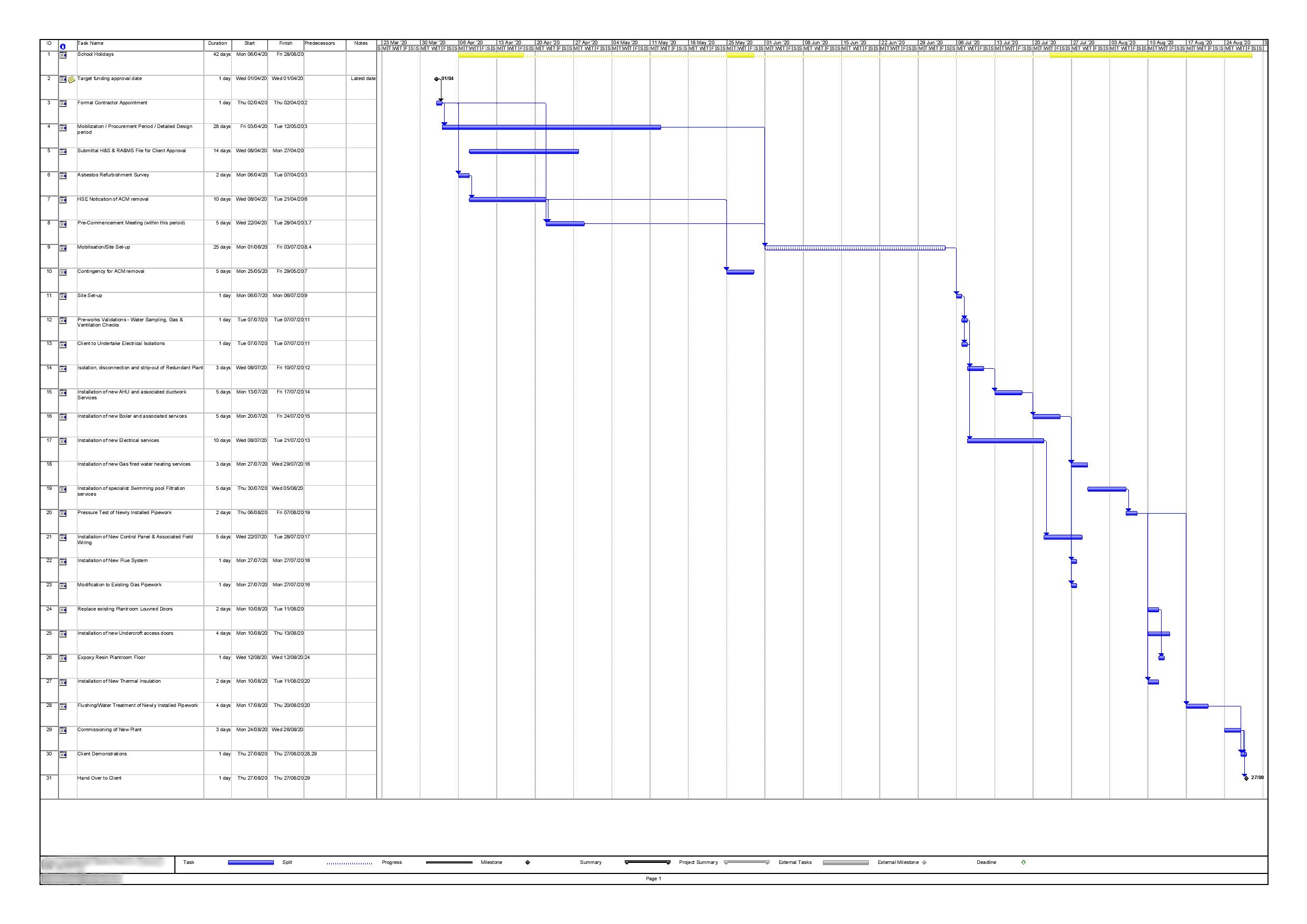
What Exactly is Project Management, and Why Is It Necessary?
Project management is an incredibly broad term, however in design and construction circles it represents an immensely crucial role. The very success of a project more often than not hinges on the quality of the project manager. A good project manager will effectively collaborate with involved stakeholders, ensure that regulations and compliance checklists are adhered to, as well as tackling any unexpected issues on the project should they arise. A couple of weeks back, we took a deep dive into the architectural design process which, itself, is something intrinsically linked to project management. Now, though, we want to examine the subsequent steps of a project, beyond that initial design and planning stage. These are the next stages that take the framework the design has provided, and turn it into something tangible.
The Process
Procurement
The procurement process involves taking the initial design composed during the architectural design stage, and working it into a detail specification that all contractors can price-up for. As a practice, we ideally look to the ‘traditional’ procurement route whereby we design and specify everything. ‘Traditional’ procurement offers the lowest risk, the most accurate costings and the least room for interpretation by contractors, meaning that the client’s expectations can be met as fully as possible. Once the specification is completed, then a contractor (often a main contractor with their teams of specialist sub-contractors) can be selected to carry out the build of the project itself. This process of selection is done through the tendering process. It’s worth noting than in larger schemes, especially, this procurement process might fall to a quantity surveyor.
Post-Procurement
Following on from the procurement process, we work with all the involved stakeholders and contractors on developing how the scheme can be delivered safely, on-time and within budget. In most cases, some of these questions will have been at least partially fleshed out as part of the contractors’ tender submissions. Tender documents most typically include details on how they’d deliver the contract regarding costing structures and technical solutions. This proactive approach enables the project’s details to be fully planned in a more timely manner once procurement is secured.
Of course, no two projects are alike, and every scheme has its own individual nuances which must be factored in during these early stages. The location of the project, for example, could very well affect the timing of deliveries throughout a project. Let’s say, as an example, that there was no way of obtaining a skip license. In this instance, waste from the project would need to be ready to be thrown into a waste vehicle that pulled up, collected the waste and then drove off again! Sometimes projects require that added degree of flexibility to be considered, and the earlier you can prepare for that, the better.
These early planning stages, prior to even getting on-site, are absolutely pivotal for a project. With so many variables at stake; the pricings of different contractors and contingency in terms of delay, etc., it’s imperative that the project management team gets as many of these variables as nailed down as possible in order to mitigate anything that may risk or jeopardise a scheme further down the line. Even then, however, as we’ve recently seen with the COVID-19 outbreak, some events just can’t be planned for, thus highlighting just how difficult a scheme’s management can be.
On-Site
After the involved parties have conducted these initial meetings, and the plan has been made as risk-averse and watertight as possible, then the scheme finally moves on-site to the construction stage. This is when the project manager really comes to the fore. They coordinate the stakeholders and ensure that the flow of communications runs as smoothly and seamlessly as possible. Depending on the project, a project manager may directly resolve a contractor’s queries, recording any amendments made. Alternatively, if the architect is still involved, then the project manager may refer back to them; all the while they’ll be making sure that formal recordings of any requests and subsequent resolutions are made.
Keys To Effective Project Management
As you can see, effectively handling a project requires a great deal of skill and expertise. There are several key, invaluable traits, however, that a talented project manager needs to possess over everything else. They are as follows:
Coordination and communication
A successful project manager is one who knows how to communicate and often mediate between two separate parties; the architect and the contractor. Project management requires a sound understanding of logistics. Project managers must bring together separate strands of the project into the right place at the right time.
Flexibility and adaptability
As mentioned above, every scheme is unique meaning every project will require a different approach. This is the case no matter how similar two projects may be on the surface. Not only that, but a project manager needs to be able to think on their feet and think laterally. When faced with an unexpected issue, they need to be able to find a workaround that doesn’t compromise the project.
Consistency
This is of paramount importance to any project manager. In recording both the Architects Instructions as well as any requests desired by the contractor, the project manager ensures the success of everybody. If a contractor makes changes without notifying the project manager, for example, this leaves them potentially open to challenges. So, it really is in everybody’s best interests for everything to be run through the project manager!
Like we learned with architectural design, project management is multi-faceted and a complex discipline to get to grips with. It’s something that requires an immense eye for detail and precision. It also requires the ability to pool together resources and continually collaborate with one another. So, if you’d like to find out more about our project management work, then get in touch! Contact Munday + Cramer today on 01245 326 200.